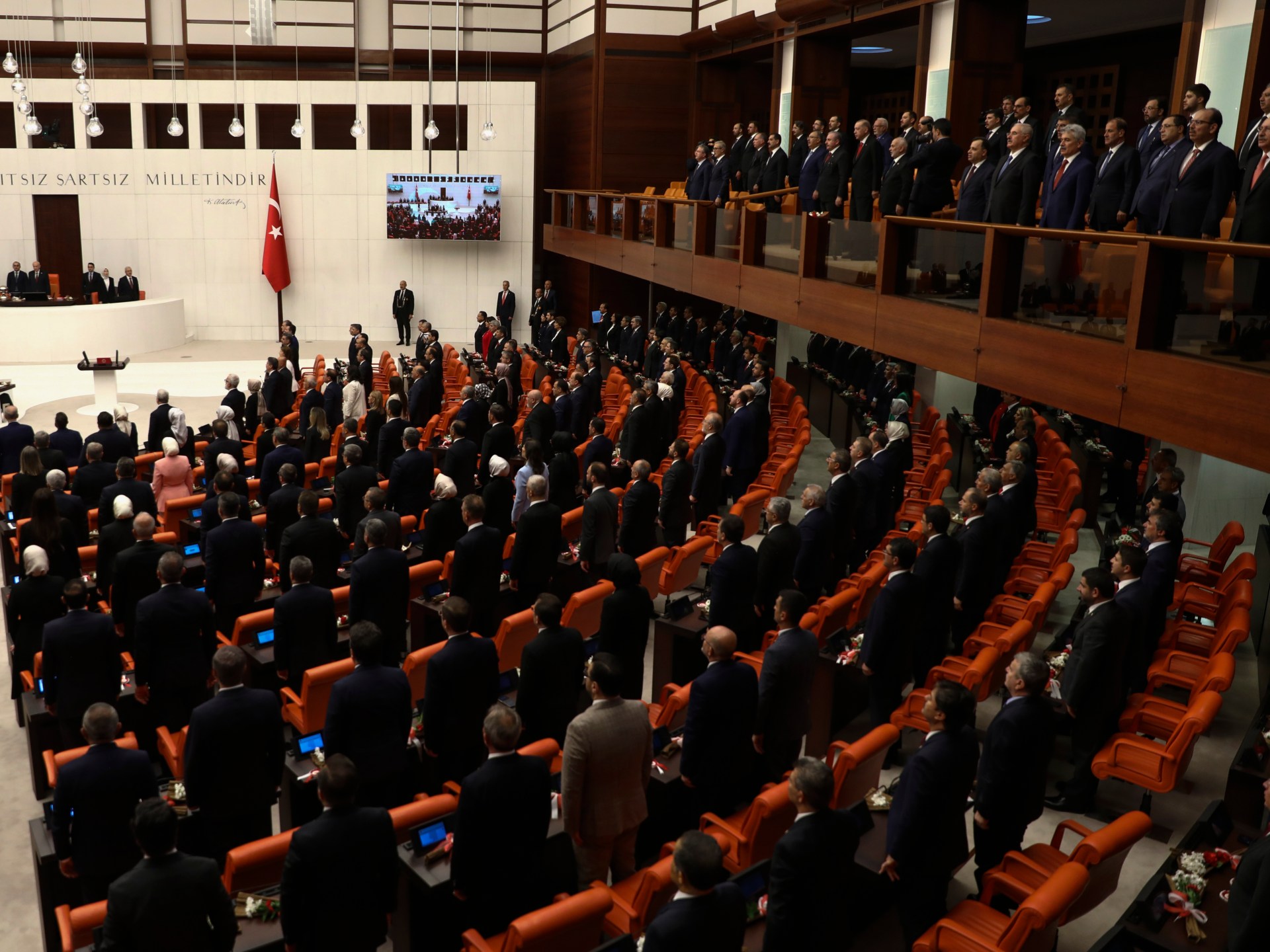Turkey endorsed Finland’s membership bid in April but, along with Hungary, has kept Sweden waiting.
The Turkish parliament is set to debate Sweden’s NATO membership bid after months of delays that have strained Ankara’s ties with its Western allies, with a vote expected this week.
The debate in the Grand National Assembly is due to take place on Tuesday, state media reported, with a vote likely the same day. The AFP news agency reported that the vote could be held on Thursday.
Turkey’s ratification would leave Hungary as the last holdout in an accession process that Sweden and its neighbour Finland began in response to Russia’s invasion of Ukraine nearly two years ago.
However, on Tuesday, Hungary’s Prime Minister Viktor Orban said he had invited his Swedish counterpart, Ulf Kristersson, for a visit to negotiate his country joining the military alliance.
Today I sent an invitation letter to Prime Minister Ulf Kristersson @SwedishPM for a visit to Hungary to negotiate on Sweden’s NATO accession.
— Orbán Viktor (@PM_ViktorOrban) January 23, 2024
Finland became the 31st member of the alliance last April. Its membership roughly doubled the length of NATO’s border with Russia and substantially strengthened the defences of three small Baltic nations that joined the bloc following the Soviet Union’s collapse.
Sweden and Finland pursued a policy of military non-alignment during the Cold War era confrontation between Russia and the United States.
However, Russia’s invasion of its western neighbour set off Europe’s biggest and most brutal land battle since World War II, upturning geopolitical calculations.
Turkish President Recep Tayyip Erdogan’s resistance to Sweden’s NATO accession reflected his more nuanced stance towards Moscow.
Ankara has profited from maintaining – and even expanding – trade with Russia while at the same time supplying Ukraine with drones and other essential arms.
Erdogan has also been one of the few NATO leaders to hold regular meetings and phone conversations with Russian President Vladimir Putin.
Turkish media reported that Putin could make his first wartime visit to Turkey next month.
US fighter jets
Erdogan’s objections to Sweden’s bid initially focused on Stockholm’s perceived acceptance of Kurdish groups that Ankara views as “terrorists”.
Sweden has responded by tightening its antiterrorism legislation and taking other security steps demanded by Erdogan over the members of the Kurdistan Workers’ Party (PKK), which the European Union and the United States also list as a “terrorist” group.
Sweden and NATO members Finland, Canada and the Netherlands also took steps to relax Turkey’s arms export policies.
The Turkish parliament’s foreign affairs committee approved the Swedish bid last month after Erdogan forwarded it to parliament in October.
However, Erdogan has since demanded that Washington follow through on its pledge to deliver a batch of F-16 fighter jets for Turkey’s ageing air force.
Erdogan last month discussed his demands by telephone with US President Joe Biden.
US officials argued that Turkey’s request could win the required congressional approval if Sweden’s NATO accession goes through – a position reaffirmed by US Secretary of State Antony Blinken during a visit to Istanbul this month.
“We have not parsed words about how ready we are for Sweden to formally join the alliance,” said US Department of State deputy spokesperson Vedant Patel after news emerged that Turkey was finally ready to ratify the Swedish candidacy.
“We have long felt that [Sweden] has met its commitment and we look forward to this process moving forward.”
Check out our Latest News and Follow us at Facebook
Original Source

